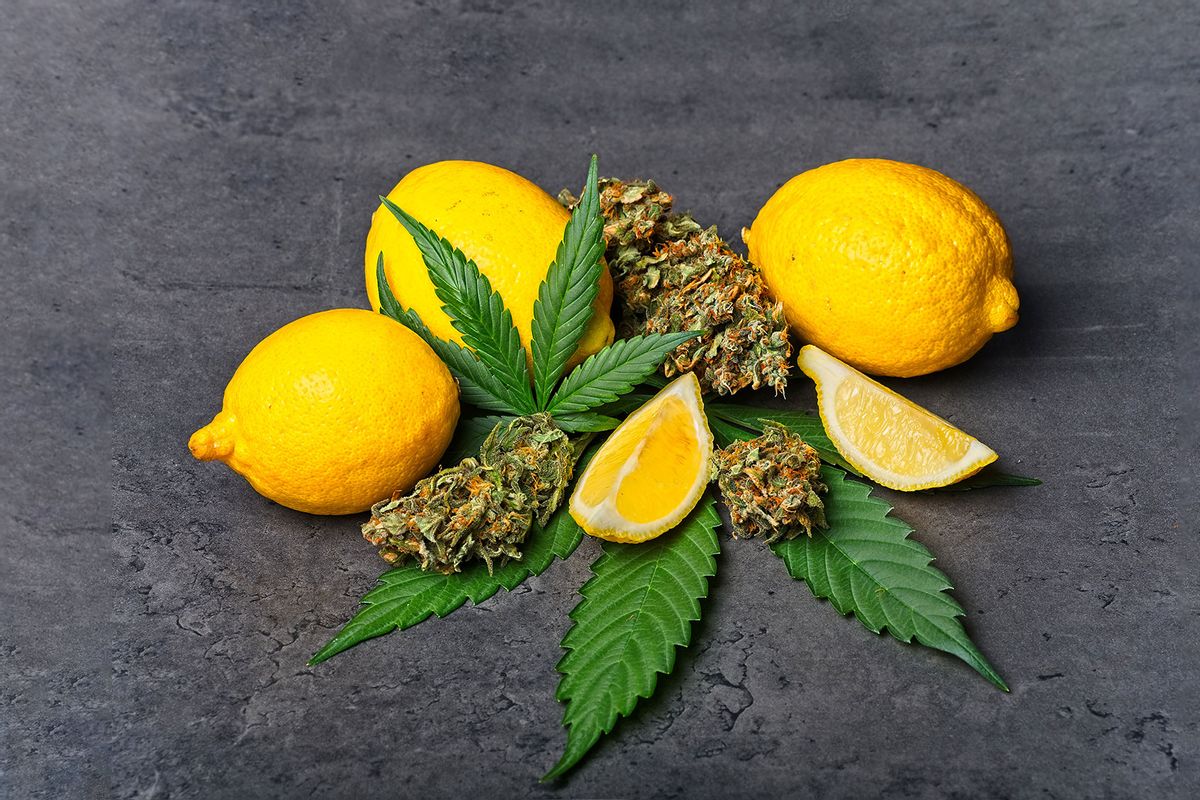Ah, the duality of pot. Does it relax you, but sometimes make you more anxious? what gives If your trips to the cannabis dispensary have you looking for strains less likely to trigger anxious paranoia, a team of scientists at Johns Hopkins University may have found something to help. According to his recent research, the key to choosing a pleasantly understated bud may lie in choosing the one that smells most like lemons.
Most people know that cannabis plants can give off tons of different smells, from skunk to cheese to gasoline and permanent markers, although berry, fruity, and citrus smells can be more pleasant. Although marijuana extracts are best known for their intoxicating THC (delta-9-tetrahydrocannabinol) and more medicinal CBD (cannabidiol), these two drugs are not responsible for the plant’s aromas. The small ones, on the other hand, come from natural oils called terpenes and flavonoids.
And while they won’t get you high on their own, they do more than act as perfumes, modulating a stoned experience, just like CBD doesn’t get people high on its own, but it’s THC’s best sidekick when both appear. in the same joint.
As published last month in the journal Drug and Alcohol Dependence, the research team found that when people were given cannabis in standard doses, the typical rate of anxiety and paranoia among test subjects dropped steadily as the scientists increased the amount of a natural lemon. scented aromatic, which so far has not been shown to have any effect on the way people experience a cannabis drug.
“Historically, THC was believed to fully account for the acute psychoactive and behavioral effects of cannabis, and other components of cannabis were largely considered unimportant,” the researchers wrote. “However, an alternative view, commonly known as the cannabis ambient effect theory, states that many components of the plant (eg, minor cannabinoids and/or terpenes) significantly influence the acute effects of cannabis.”
A terpene in cannabis called d-limonene doesn’t get you high at all, but the team’s discovery suggests it could pleasantly color any high you experience. D-limonene is one of the many aromatic terpenes that give weed its distinctively citrusy bouquet and is the main terpene in (you guessed it) real lemons.
“This experiment demonstrated that the simultaneous administration of vaporized d-limonene and THC reduced subjective indices of THC-induced anxiety in a dose-ordered manner.”
Traditional home growers have long prized citrus-heavy cannabis strains to provide users with an easier psychological experience, leading to many well-known methods of citrus infusions by titrating water and soil. Among the most famous and enjoyable cannabis strains are those with names that salute the characteristically bright aroma of d-limonene, such as Super Lemon Haze and Lemon OG Kush, all of which are noted for producing a very creative and focused brain effect, with less notes of anxiety or panic at the top.
However, as legalization has grown, the cannabis industry of late has advanced this kitchen wisdom from traditional herbalists, with ads from some companies touting d-limonene inclusions as a less edgy option. As the research team noted, scientists began to hypothesize d-limonene’s paranoia-mitigating role.
Want more health and science stories in your inbox? Subscribe to Salon’s weekly Lab Notes newsletter.
When researchers at John Hopkins recently adopted this hypothesis, they gave 20 subjects 30 mg of THC and typical results occurred in eight test sessions. But when they gave subjects 30 mg of THC plus 15 mg of d-limonene, the results were direct and promising.
“This experiment demonstrated that coadministration of vaporized d-limonene and THC reduced subjective indices of THC-induced anxiety in a dose-ordered manner,” the team wrote, adding that the d- limonene did not interfere with any other common outcome of cannabis intake.
Not only did this lead the team to discover a path to an improved experience for cannabis users, but it may also unlock new evidence for a more comprehensive understanding of the surround effect theory.
“Although largely untested in empirical clinical research, the cannabis environmental effect theory has greatly influenced the practices of the cannabis industry, including the way cannabis is grown, marketed and consumed. cannabis products,” the researchers wrote. “For example, cannabis is often selectively bred to contain specific profiles of cannabinoids and/or minor terpenes and there is a growing market for products that are assumed to contain primarily cannabinoids or minor terpenes,” the researchers said, adding that future tests would still be needed.
So the next time you’re shopping for a more relaxing experience without having to buy a sleep-inducing smoke, snorting your nose like a glass of wine can help you sniff out a lemon-scented variety that you don’t will leave acid
Read more
about catching fire
#Citrusscented #weed #paranoid #scientists #report
Image Source : www.salon.com
